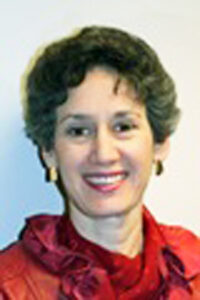 By Fletcher Word
By Fletcher Word
The Truth Editor
The Lucas County Court Appointed Special Advocates are seeking to bring more minority volunteers into the system to work with children in the child welfare system.
For the past 42 years, the Lucas County CASA have been “bringing hope to children involved in the child welfare system … and [enabling] children to have a voice,” says Judy Leb, CASA director since 2016.
The national CASA organization has researched the impact of its local programs and has collected data that show that children who have been in the CASA programs are more likely to succeed in school and less likely to remain in foster care, says Leb.
Leb, a graduate of Miami University, earned her law degree from The Ohio State University in 1984 and has been with CASA since 2000, first as a recruitment/training coordinator and then as director since 2016.
“The research shows that the courts assign the most serious cases of maltreatment to CASA volunteers; yet, despite the fact that CASA volunteers are getting the cases with the most risk to the children, a child with a CASA volunteer has significantly less placements than a child without a CASA volunteer,” she says.
However, in recent years the Lucas County CASA, much like its sister organizations around the nation has faced a dual set of difficulties maintaining that successful record. The COVID pandemic in particular has resulted in both a loss of CASA volunteers and an increase in the number of child abuse and neglect cases the agency has witnessed – a 37 percent increase, says Leb.
“It’s a difficult time – our lives have been disrupted in so many ways,” she notes. ”People have lost jobs, kids have been home from school – for people already under tremendous stress, especially financially, the pandemic added more stress.”
Most particularly, the loss of minority volunteers has been especially acute over the past several years. Such a loss of minority volunteers means that too many children in the system will not have volunteers who look like them to investigate, advocate and monitor their cases.
“Disproportionality is a great concern in a child welfare system,” says Leb
In fact, in August 2022, the American Bar Association Commission on Youth authored and sponsored a resolution which notes that racial disparities occur at every point in the child welfare system – from investigations to family separation to termination of parental rights.
“This disproportionality exists locally as well. Lucas County CASA believes that one effective way to address the disproportionality of African Americans in the child welfare system is to have many more African American volunteers. Currently, only six percent of CASA volunteers are African American; yet, more than half of the children we serve are African American,” says Leb.
The agency is being proactive in its approach to overcoming that disproportionality by reaching out to local media and organizations with an intent to get the word out to potential African-American volunteers. CASA is holding a Volunteer Information Meeting on Sunday December 4 at the Sanger Branch Library on Central Avenue and the next training course begins on January 18, 2023.
Leb stresses that the importance of the volunteer force at the agency makes all the difference to kids – kids are generally greatly impacted by the realization that adult mentors and monitors are not getting paid for the service they are providing. Additionally, when that volunteer looks like the kid being mentored, the chances for the child’s success in navigating the child welfare system are greatly enhanced.
The Lucas County CASA was founded 42 years ago and was the third such agency in the nation. The local agency was inspired by former Juvenile Court Judge Andy Devine who traveled to Seattle to view the first program established there. Devine had been distressed “by decisions he had to make when he did not have all the information he needed to make such decisions,” recalls Leb. “He said, ‘I’m terminating parental rights for life and I need more help.’”
Devine saw in Seattle a way to bring into the decision-making process as much information as possible to move forward effectively and a way to bring hope to children and families in such dire circumstances.
“Children and youth assigned a CASA volunteer reported significantly higher levels of hope. A child’s hope has been linked to numerous positive outcomes such as academic success, overall wellbeing, increases in self-control, positive social relationships, and optimism,” adds Leb.
